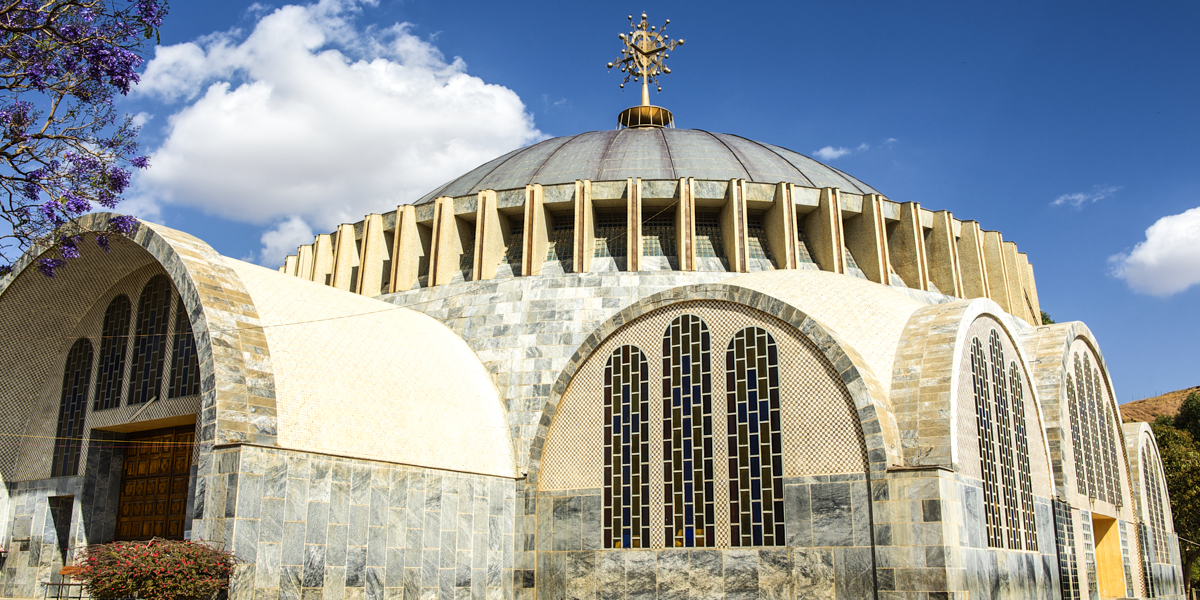After the destruction of the Jerusalem Temple, no one knows for sure where the Ark of the Covenant ended up. But 45 million Ethiopian Orthodox Christian beg to differ.
Lenten Campaign 2025
This content is free of charge, as are all our articles.
Support us with a donation that is tax-deductible and enable us to continue to reach millions of readers.
The monks living in the small Church of St. Mary of Zion, also called “The Chapel of the Ark,” in the sacred Ethiopian city of Aksum are forbidden from stepping outside the gate that encircles the building.
They cannot abandon the task that has been entrusted to them: they are to watch the “Tabot,” as they call the Tables of the Law in Ethiopia, for as long as they live.
Abba Gebre Meskel, 59, has already spent three decades in the chapel.

Read more:
Ethiopia’s rock-hewn churches were once considered the “New Jerusalem”
Between archaeology and legend
According to the Book of Exodus, the Tables of the Law contained the Ten Commandments God gave to Moses on Mount Sinai. Some biblical scholars date the event around the year 1440 BC.
Popular apocryphal legends circulating in North Africa and some regions of the Middle East attribute supernatural powers to the Tables and the Ark that contained them. It was around these legends that so many others were woven, including those telling of the Nazi obsession for occultism and relics that Hollywood would profit from, giving Indiana Jones his acclaimed first mission on the big screen.

But the truth is that after the destruction of the Temple of Solomon in Jerusalem, no one knows for sure where the Ark of the Covenant ended up. The Ark disappeared without a trace (and without any known record of its whereabouts), so the place where it might be found — assuming it had been preserved in the first place — remains today one of the great enigmas not only of history but, particularly, of archaeology.
But what is certain is that almost 45 million Ethiopian Orthodox Christians (part of the Coptic tradition) are convinced that the Ark of the Covenant was taken about 3,000 years ago to Aksum, in northern Ethiopia, and has since been jealously cared for by these monks in the modest church of Saint Mary of Zion.

Read more:
Climbing a 400-meters-tall cliff to get baptized in Ethiopia
Menelik, the son of Solomon
According to the Coptic tradition, the Queen of Sheba (whose visit to Solomon’s palace is noted in Scripture and celebrated in art) and King Solomon had a son: Menelik I, the founder of a dynasty of Solomonic emperors who, for three thousand years, ruled Ethiopia. He, Menelik, would have personally been in charge of moving the precious chest made of gold and acacia wood.
According to deacon Zemikael Brhane, as noted by Lonely Planet’s report on the Chapel, “God himself chose this land, and Aksum is our most sacred city. Men in the West always need visible evidence, but we Ethiopians do not need to see the Ark to know it is here. We just feel it.”

Read more:
Where are the oldest churches in Africa?
Who can enter the chapel?
The Ark’s purported location is not open to the public. Only the monks in charge of taking care of the site may enter. Few are even allowed to speak to the guardian monks. One exception is historian Ephrem Brhane, who guides both tourists and faithful from all over the world around Aksum. As reported, Brhane says, “Abba Gebre Meskel is convinced 200 percent that this is the authentic Ark of the Covenant: it not only has the exact shape described in the Bible, but also it shines with enormous strength.”

Read more:
Ethiopia planted 350 million trees in one day
Seen only in replica
Seven days a month, before sunrise, the monks of Saint Mary of Zion take a copy of the Ark in a procession. And despite the fact that every one of the nearly 50,000 Orthodox churches in Ethiopia holds a similar replica, the processions are attended by almost 1,000 people.
Sadly, the old chapel of Our Lady of Zion seems to have met its end; numerous roof leaks have forced the monks to begin the construction of a new church, right next to this one, to which the monks, in absolute secrecy, will move the Ark.
No one will know when the move happens, says the keeper of the church, until it has already occurred. Make sure to visit the slideshow below to discover the rock-hewn churches of Lalibela, the sacred Ethiopian city once considered the New Jerusalem.









